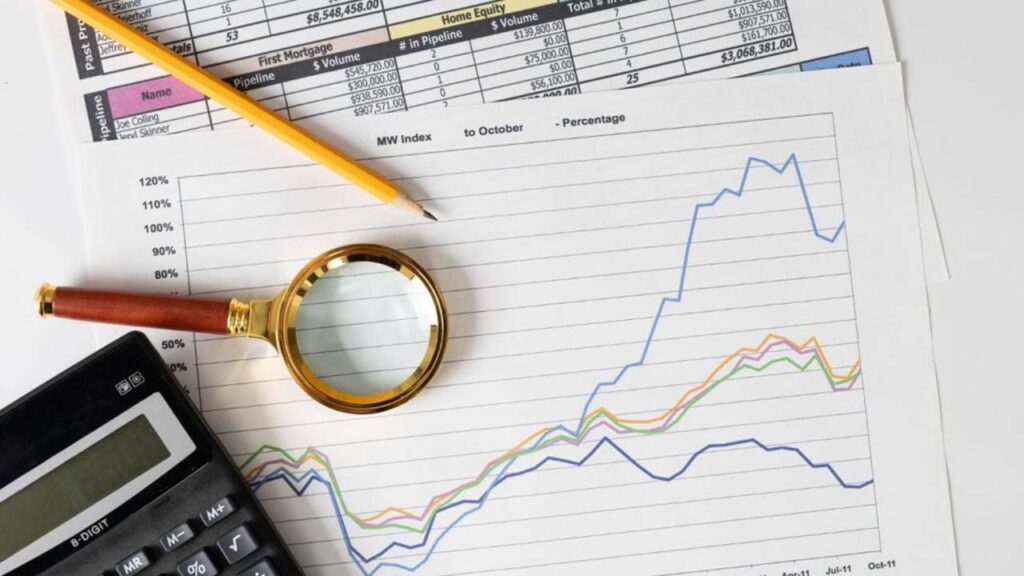SGDLoan.com – Understanding the commercial loan rate of interest is crucial for businesses in Singapore aiming to secure financing for growth, vehicle purchases, or property investments.
In today’s dynamic economic environment, being aware of loan interest trends, comparing available offers, and knowing the influencing factors will empower businesses to make strategic financial decisions.
This guide will walk you through everything you need to know about commercial loans in Singapore, including rates for vehicle and property financing, and tips to secure the best deals.
Understanding Commercial Loan Interest Rates

To make smarter borrowing decisions, it is essential first to understand what defines the commercial loan rate of interest and why it varies across different institutions and loan types.
The commercial loan rate of interest represents the cost of borrowing funds from a bank or financial institution for business purposes.
It is typically expressed as a percentage of the principal amount, charged over a year.
Commercial loans can be used for a variety of needs, including buying vehicles, investing in properties, financing working capital, or expanding business operations.
Several factors influence the rates that lenders offer:
- Monetary Policy and Benchmark Rates
In Singapore, policies set by the Monetary Authority of Singapore (MAS) significantly influence commercial loan rates. Changes to benchmark rates like the Singapore Overnight Rate Average (SORA) directly impact floating loan rates. - Economic Conditions
Inflation rates, GDP growth, and overall market sentiment shape the interest environment. Higher inflation often leads to higher loan rates. - Borrower’s Creditworthiness
Lenders assess the borrower’s ability to repay by evaluating financial statements, credit history, business performance, and cash flows. - Loan Characteristics
Factors like the loan amount, repayment period (tenure), collateral provided, and whether the rate is fixed or floating also play a big role in determining the final interest rate.
Understanding these aspects helps businesses better negotiate and secure suitable commercial loans.
Commercial Vehicle Loan Rate of Interest

When a business needs to acquire vehicles for operations, logistics, or transport services, securing the right financing option becomes vital.
The commercial vehicle loan rate of interest plays a significant role in determining the total cost of owning a commercial vehicle.
Banks and financial institutions in Singapore offer varied interest rates for commercial vehicle loans depending on several criteria.
For instance, UOB offers competitive commercial vehicle financing with rates starting from 2.99% for new light commercial vehicles, according to information from Used Car Loan Singapore.
Here are key factors affecting the rate of interest on commercial vehicle loan:
- Type of Vehicle
New commercial vehicles generally attract lower interest rates compared to used ones. High-value heavy vehicles may also have different rate structures. - Age and Condition of the Vehicle
Older vehicles often incur higher rates due to the greater risk associated with their depreciation and maintenance costs. - Loan Tenure
Longer loan periods might lead to higher cumulative interest payments, even if monthly installments appear smaller. - Down Payment
A higher upfront payment can reduce the principal amount and the lender’s risk, leading to a lower interest rate.
Tips to Secure Better Commercial Vehicle Loan Rates:
- Maintain a strong and clean credit history.
- Provide a substantial down payment whenever possible.
- Choose a shorter loan tenure to enjoy lower rates.
- Compare offers from various lenders and negotiate.
It’s wise to assess the total cost of borrowing and not just focus on the headline interest rate.
Commercial Property Loan Rate of Interest

Investing in commercial property is a significant milestone for any business, but it also comes with major financial responsibilities.
Hence, understanding the commercial property loan rate of interest is paramount.
Currently, banks like OCBC offer floating rates for commercial property loans starting from 1.8% to 2.5% per annum, as noted from OCBC Business Banking articles.
Types of Commercial Property Loan Packages Available:
- Fixed Rate Loans
These offer stability in repayments over a certain period, protecting the borrower from interest rate hikes. - Floating Rate Loans
These are pegged to benchmark rates like SORA and can fluctuate over the loan tenure.
Below is a table summarising some current offerings:
| Bank | Rate Type | Interest Rate (p.a.) |
|---|---|---|
| OCBC | Floating | 1.8% – 2.5% |
| UOB | Fixed | 2.3% – 2.6% |
| DBS | Floating | 1.9% – 2.4% |
Eligibility Criteria for Commercial Property Loans:
- Must be a registered business entity in Singapore.
- The property must be intended for commercial use.
- Strong financial standing and documentation are required.
Steps to Apply for a Commercial Property Loan:
- Prepare detailed financial statements for your business.
- Obtain a valuation report for the intended property.
- Submit an application to shortlisted banks.
- Negotiate loan terms and review the Letter of Offer carefully.
Choosing the right package based on your cash flow stability and risk appetite is key to managing your long-term financial commitment effectively.
Commercial Loan Interest Rates Comparison

Given the diverse options available, conducting a thorough commercial loan interest rates comparison is critical before committing to a lender.
Different loan products serve different purposes and come with varying cost structures.
Here’s a simplified comparison of popular commercial loan products in Singapore:
| Loan Type | Interest Rate (p.a.) | Key Features |
|---|---|---|
| SME Working Capital Loan | 3.5% – 5.0% | Partially government-guaranteed |
| Unsecured Business Term Loan | 7.0% – 12.0% | No collateral required |
| Temporary Bridging Loan Programme | 2.5% – 5.0% | Special COVID-19 recovery support |
Important Aspects to Consider During Comparison:
- Effective Interest Rate (EIR)
Always check the EIR rather than just the nominal rate to understand the true cost. - Additional Fees
Processing fees, annual fees, and penalty charges can impact the overall cost. - Loan Flexibility
Some loans allow early repayment without penalties, providing flexibility if your cash flow improves.
Taking time to compare offerings ensures that your business finds financing that aligns with both current needs and long-term goals.
What Is a Good Commercial Loan Interest Rate in Singapore?

Knowing what is a good commercial loan interest rate in Singapore requires understanding both market conditions and your individual financial profile.
Typically, a good commercial loan rate of interest is:
- Below 3% for secured loans such as property or vehicle financing.
- Under 6% for unsecured business loans.
- Below benchmark rates for government-assisted programmes.
Factors Determining a Good Commercial Loan Rate:
- Security and Collateral Provided
Secured loans naturally attract lower rates due to the reduced risk to lenders. - Creditworthiness and Business Stability
Strong cash flows, good credit scores, and a solid business track record make you eligible for more competitive rates. - Loan Structure and Repayment Terms
Shorter tenures generally lead to lower rates and less total interest paid.
According to financial experts at OCBC, businesses that closely monitor SORA trends can benefit from choosing floating rate packages when rates are low, providing significant cost savings over fixed rate options.
Tips for Securing the Best Commercial Loan Rates

Getting the most competitive commercial loan rate of interest requires preparation, strategic comparison, and proactive negotiation.
Here’s a more detailed approach:
- Enhance Your Business’s Financial Health
Clear outstanding debts and ensure that your financial statements reflect strong profitability and positive cash flow trends. - Prepare Comprehensive Documentation
Lenders prefer well-organised businesses. Provide updated profit and loss statements, balance sheets, cash flow forecasts, and any relevant licenses or contracts. - Explore Multiple Lenders
Approach not just banks, but also alternative lenders who may offer better rates or customised terms suitable for your business model. - Utilise Government-Assisted Loan Programmes
Programmes like the Enterprise Financing Scheme (EFS) can offer reduced interest rates and increased loan quantum, especially for SMEs. - Negotiate Beyond the Rate
Besides asking for a lower rate, negotiate on processing fees, legal fees, and early repayment charges to further reduce overall costs.
Taking these steps will strengthen your position and potentially save your business thousands of dollars over the life of the loan.
Differences Between Fixed and Floating Commercial Loan Rates
Before deciding on a loan package, businesses must understand the core differences between fixed and floating interest rates.
Fixed Rate Loans:
- Provide stability in monthly repayment amounts.
- Shield borrowers from interest rate hikes.
- Might be slightly higher than initial floating rates.
Floating Rate Loans:
- Pegged to a benchmark like SORA, causing monthly payments to vary.
- Potentially lower initial costs but with increased risk if rates rise.
- Suitable for businesses that can absorb interest fluctuations.
Choosing between fixed and floating rates depends on your risk appetite, cash flow consistency, and market outlook.
How MAS Monetary Policy Affects Commercial Loan Rates
The Monetary Authority of Singapore (MAS) plays a crucial role in shaping the financial environment.
When MAS tightens monetary policy to curb inflation, benchmark interest rates rise.
This, in turn, increases the commercial loan rate of interest across all sectors, making borrowing more expensive.
Businesses must watch MAS announcements carefully to time their loan applications and renegotiations optimally.
Step-by-Step Guide to Applying for a Commercial Property Loan
Applying for a commercial property loan involves careful preparation:
- Evaluate Your Financial Readiness
Ensure sufficient cash flow and savings for down payment and initial costs. - Research Suitable Properties
Commercial properties must meet the bank’s valuation and compliance criteria. - Shortlist Lenders
Choose lenders offering competitive commercial property loan rate of interest. - Submit Applications
Provide complete financial and property documentation. - Negotiate Terms
Discuss interest rates, loan tenure, and flexibility terms. - Review and Accept Loan Offer
Carefully review all terms before signing.
By following these steps, businesses can avoid delays and secure favourable financing terms.
Understanding the commercial loan rate of interest is not just beneficial—it is essential for businesses aiming to optimise financing decisions and enhance their long-term profitability.
By being proactive, knowledgeable, and strategic, businesses in Singapore can successfully navigate the loan landscape and leverage financing as a tool for sustainable growth.









